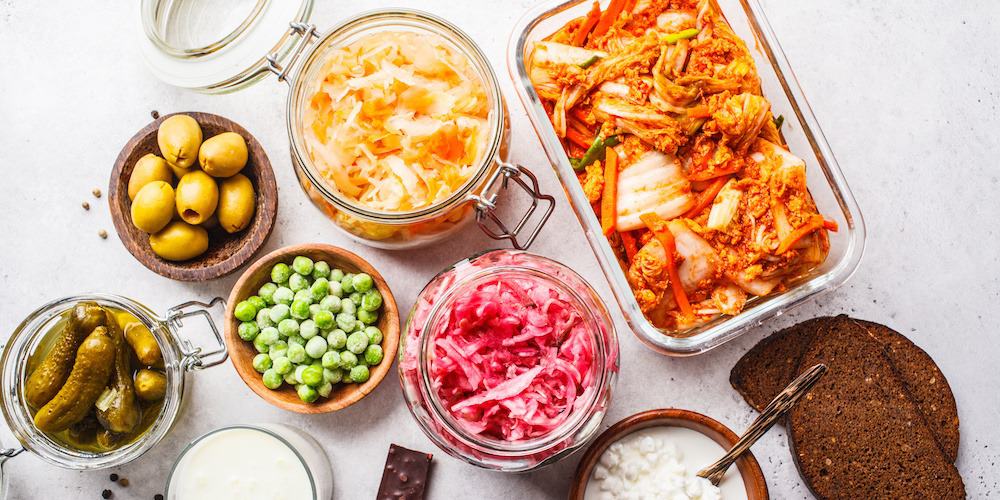Our microbiota, that is to say the ecosystem of living and microscopic organisms present in our digestive system, interacts dynamically with our metabolism.
Recent discoveries in this field reveal that microbial diversity can play a crucial role in nutrient assimilation and, ultimately, in weight management.
So can we modulate the composition of our microbiota to promote weight loss?
This is where adjusting our diet comes into play, offering a fascinating opportunity to shape our figure by wisely nourishing our gut flora. I explain everything you need to know about the power of microbiota in weight loss.
📚 Read also | How to choose the best probiotics according to your needs? A pharmacist’s opinion
How the microbiota influences our figure
Diversified microbiota, better nutrient assimilation
The answer lies in the biodiversity and density of this microbial ecosystem.
Research shows that obese people often have less diverse microbiota than lean people. This diversity, or rather its absence, can influence nutrient assimilation.
For example, some bacteria, called “super extractors” like Bacteroides thetaiotaomicron, are remarkably effective at extracting calories from food.
Thus, two individuals having the same meal might store different amounts of calories, all depending on their gut flora.
The importance of genes
But that’s not all. Recent studies suggest that the composition of our microbiota could even predict our propensity to obesity.
The genes of our microbiota, linked to carbohydrate and protein digestion, can provide clues about our ability to lose weight, as suggested by this article.
For instance, a gut flora skilled in starch breakdown is often associated with a difficulty in losing weight.
Conversely, the presence of the bacterium Akkermansia muciniphila is often a sign of a metabolism favoring thinness, as shown by this study.
Inflammation and metabolic risks
Finally, an imbalance in the microbiota can lead to chronic inflammation. This promotes weight gain and increases the risk of metabolic diseases.
The key? Ensure the richness and diversity of our microbiota for optimal weight management.
So, how can we take care of our microbiota to maximize our weight loss efforts? Here are some tips I often share during my consultations.

My tips to rebalance your microbiota for weight loss
Adapt your diet for a direct influence on the microbiota
To positively influence the composition of one’s microbiota, I advise to modulate your diet.
By adjusting our diet, not only do we modulate the bacterial populations of our intestine, but some experts even believe that this could steer us towards a flora promoting weight loss.
My nutritional advice
Dietary fibers are your microbiota’s best friends. They nourish the good bacteria and promote their growth.
Include more vegetables, fruits, and whole grains while varying the sources daily.
Fast sugars consumed daily deteriorate your intestinal balance. Sodas, candies, pastries, ice creams, and processed foods promote the growth of harmful bacteria to your microbiota and your waistline.
🎧 Listen to our podcast | Fibers: user guide
Personalized supplementation
Taking dietary supplements containing probiotics and prebiotics can help to rebalance your microbiota.
However, not all strains are universal. The “working” strains will vary from person to person.
Taking a probiotic is like sending a certified letter to our microbiota. Only if the probiotic strains do not speak the same codes as your intestinal bacteria, then the effect will be lesser. Don’t hesitate to explore different strains.
Prebiotics like inulin, fructooligosaccharides (FOS), galactooligosaccharides (GOS), xylooligosaccharides (XOS), pectin, acacia gum, lactulose, resistant starches, and beta-glucans nourish your microbiota. It’s a fertilizer.
It is useful to choose the appropriate prebiotic(s) to stimulate “good bacteria”. Those you need to strengthen.



